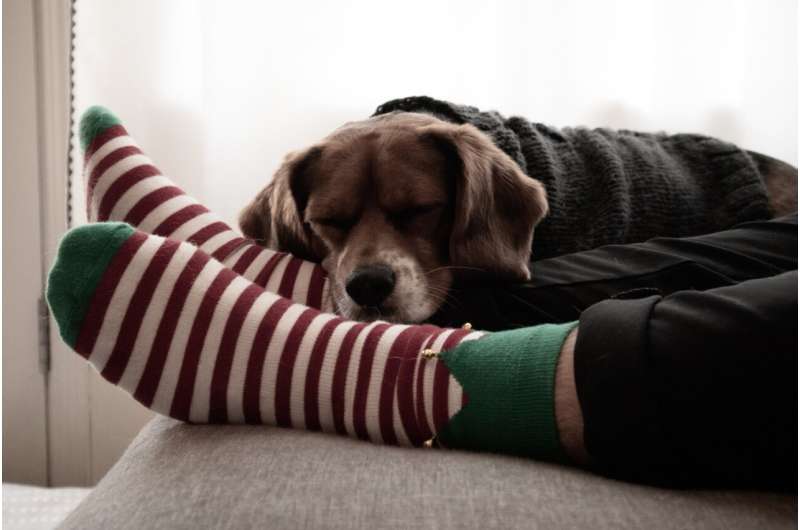#Study reveals your lovable pet dog or cat could lead to restless nights

Table of Contents
“Study reveals your lovable pet dog or cat could lead to restless nights”

A new study published in the journal Human-Animal Interactions reveals that your lovable pet dog or cat may lead to you having more restless nights than those graced with long periods of peaceful sleep.
The research, led by Dr. Lauren Wisnieski of Lincoln Memorial University, U.S., focused specifically on pet ownership in the U.S. and drew upon data from the National Health and Nutrition Examination Survey (NHANES) conducted in 2005-2006.
Dr. Wisnieski, Assistant Professor of Public Health and Research and Affiliation, found that having a dog was associated with greater odds of having a sleep disorder and having trouble sleeping while having a cat was associated with a higher chance of having leg jerks.
While the causal nature of pet ownership on sleep quality and sleep disorders was unable to be established, the results of the study are consistent with previous studies that found that pet ownership has a negative impact on sleep quality.
Dr. Wisnieski said, “Prior studies on the association between pet ownership and sleep quality and sleep disorders have varied results.
“On the one hand, dogs and cats may be beneficial for an owner’s quality of sleep due to the social support that pets provide—pets offer a sense of security and companionship, which may result in improvements in levels of anxiety, stress and depression. Yet on the other hand, pets may disrupt their owners’ sleep.
“This cross-sectional study aimed to determine if there is an association between dog and cat ownership and sleep quality and sleep disorders—including consideration of aspects such as snoring, waking up during the night, needing pills to sleep and leg jerks.”
The research built multivariable logistic regression models that also included sleep quality factors such as feeling unrested, feeling sleepy, not getting enough sleep, taking longer than 15 minutes to fall asleep and getting less than six hours of sleep on average.
Dr. Wisnieski suggests that the differences in the association of sleep quality and cat versus dog ownership may be because cats tend to be more active at night.
Furthermore, she found that there were fewer differences in sleep quality indicators between cat and non-cat owners compared to dog and non-dog owners.
Dr. Wisnieski added, “If the causal relationship is established through further investigation, the results will have implications for clinician recommendations for treating patients with poor sleep quality.
“Additionally, educational resources can be developed to inform pet owners about the risks of sleep disruptions and offer potential solutions, such as crating the pet or restricting access to the bedroom at night.”
In conclusion, the study recognizes that there may be potential positive aspects of co-sleeping with a pet, but the data obtained from NHANES did not state whether owners indeed slept with their dogs or cats.
“In the future, studies would benefit from measuring the human-animal bond, so that we can understand how the strength of it affects quality of sleep,” Dr. Wisnieski added.
More information:
The association of pet ownership and sleep quality and sleep disorders in United States adults, Human-Animal Interactions (2023). DOI: 10.1079/hai.2023.0005
Provided by
CABI
Citation:
Study reveals your lovable pet dog or cat could lead to restless nights (2023, March 16)
retrieved 17 March 2023
from https://medicalxpress.com/news/2023-03-reveals-lovable-pet-dog-cat.html
This document is subject to copyright. Apart from any fair dealing for the purpose of private study or research, no
part may be reproduced without the written permission. The content is provided for information purposes only.
If you liked the article, do not forget to share it with your friends. Follow us on Google News too, click on the star and choose us from your favorites.
For forums sites go to Forum.BuradaBiliyorum.Com
If you want to read more Like this articles, you can visit our Science category.



